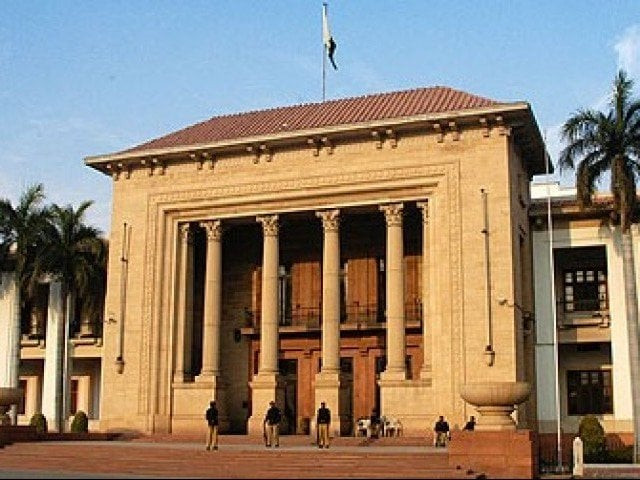Punjab Assembly: Law to regulate private education amended
Amended law requires authority’s permission for fee revision

Punjab Assembly. PHOTO: EXPRESS
The Provincial Assembly passed several amendments on Friday to the law on private education allowing the provincial government to regulate registration procedure and tuition fee revision at these institutes.
Opposition members withdrew three of the amendments moved by them calling the law encouraging.
Other laws passed on Friday were the Punjab Education Foundation (Amendment) Bill 2015; the Ali Institute of Education Lahore (Amendment) Bill 2015; and the Ghazi University Dera Ghazi Khan (Second Amendment) Bill 2015.
Under the Punjab Private Educational Institutions (Promotion and Regulation) Bill (Amended) 2015, the provincial government would be able to register private educational institutes, regulate their fee structure and impose penalties on violations.
An authority set up under the law would be responsible for registration of private education institutes. Existing institutes would be asked to do so in 45 days (from the day of the commencement of the law). The authority would be required to dispose of applications for registration within 60 days.
The clause on fee structure reads that institutes will not be allowed to revise tuition fee during an academic year. It says institutes can revise fees for the upcoming academic year after seeking permission from the registration authority. It says request for permission should be submitted three months before the start of the academic year. It says a fee hike cannot be no more than five per cent of the fee for the previous year.
Institutes are allowed to file appeals against the registration authority’s decision. They may submit these appeals to the divisional commissioner concerned who would be required to decide the matter in a month.
The law said that one-time admission and security fees cannot be more than the monthly tuition fee charged by the institute. It prohibits institutes from requiring parents to purchase uniform, textbooks or other educational material from a particular shop.
Penalties
The law proposes an administrative penalty up to Rs20,000 a day for violations. The penalty is to be charged the number of days from issuance of a notice to the day when the violation is fixed. For violations that continue for over 30 days, the registering authority might file a complaint with a magistrate of the first-class. The court could impose a fine between Rs200,000 and Rs2 million.
The fine proposed for failure to register with the new authority is between Rs300,000 and Rs4 million.
As they withdrew three amendments moved by them, Opposition members urged the government to ensure effective deterrence for violators. Opposition member Khadija Umar stressed the need for a uniform syllabus at all private institutes.
Opposition members also withdrew proposed amendments to the Punjab Education Foundation Bill. However, they expressed reservation at the delayed submission of a report on the bill by the standing committee concerned. They said the short notice had prevented some members from reading the draft.
Issues taken upon points of order on Friday were the appointment of technical staff at government offices and problems faced by the Ali Institute because of the establishment of a Sunday Bazaar near its premises.
An Opposition member raised the issue of the death of a girl student at the Mianwali Daanish School apparently from consumption of poisonous food. The law minister assured the House that he would get back to the lawmaker concerned by Friday evening with an update on police investigation into the matter. He said if needed an FIR would be lodged against the school administration.
Resolution on Hindu marriages
The House unanimously passed a resolution authorising the Parliament to legislate on matters pertaining to registration of Hindu marriages. The resolution was passed under the provisions of the Article 144 of the Constitution (that allows the parliament to pass laws on any matter after the provincial assembly concerned has passed a resolution empowering it do so)
Opposition lawmaker Shanila Ruth welcomed the resolution but said the action should be extended to cover other minority communities as well.
Published in The Express Tribune, February 27th, 2016.



















COMMENTS
Comments are moderated and generally will be posted if they are on-topic and not abusive.
For more information, please see our Comments FAQ